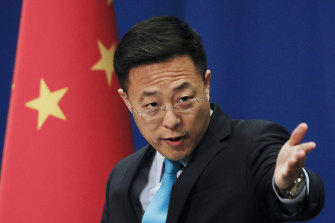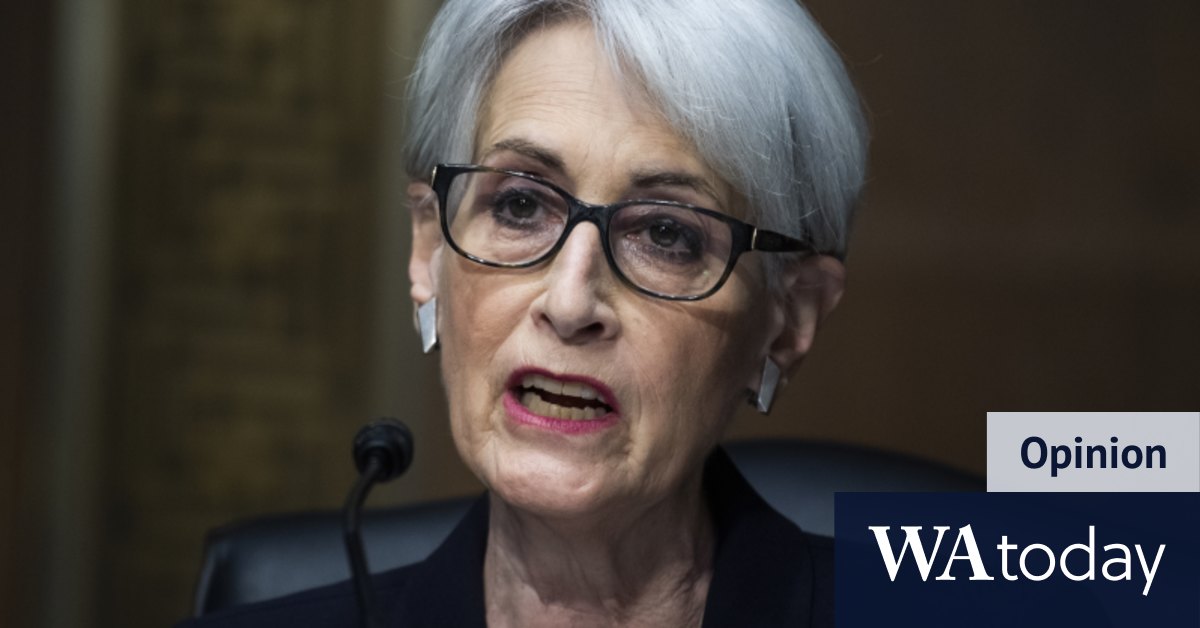Wendy Sherman arrives in China
That didn’t go down well with China’s belligerent foreign ministry spokesman, Zhao Lijian, who said the US statement was arrogant and overbearing.
“We didn’t buy it in Anchorage and we surely won’t buy it in Tianjin,” he said.
With such tensions and such low expectations of the outcome of the meeting the best the Americans can hope for is that it inches the two sides towards a hoped-for meeting of Joe Biden and China’s Xi Jinping on the sidelines of the G20 meeting in Italy scheduled for this October.
Wang Yi, on Saturday, gave the US his own dressing down.
“The United States always wants to exert pressure on other countries by virtue of its own strength, thinking that it is superior to others,” he said.
“However, I would like to tell the US side clearly that there has never been a country in this world superior to others, nor should there be, and China will not accept any country claiming to be superior to others.
“If the United States has not learned how to get along with other countries on an equal footing by now, then it is our responsibility, together with the international community, to give the US a good tutorial in this regard.“

China’s Foreign Ministry spokesman Zhao Lijian had strong words for the US ahead of Sherman’s arrival. Credit:AP
With such tensions and such low expectations of the outcome of the meeting the best the Americans can hope for is that it inches the two sides towards a hoped-for meeting of Joe Biden and China’s Xi Jinping on the sidelines of the G20 meeting in Italy scheduled for this October.
There is, however, little likelihood of any thawing of the increasingly hostile relationship between the two major powers given the escalation of US combativeness that has occurred since Biden took office.
The early success of the administration’s efforts to re-establish the traditional alliances that were ravaged by the Trump administration and enlist them in its efforts to contain China and to condemn and sanction it for its claimed human rights abuses and its treatment of Hong Kong are also unsettling and agitating the Chinese.
It is, however, obviously better for both countries and the rest of the world that they talk through their issues and try to find ways to de-escalate the tensions and the prospect, however unlikely, of a miscalculation that leads to military conflict.
It is also possible that the US could offer to de-escalate a different conflict, the trade war initiated by Donald Trump that led to the US imposing $US360 billion ($490 billion) of tariffs on China’s exports to the US and China responding with tariffs of its own.
A truce was called in that conflict early last year, with China pledging to buy $US200 billion more goods from the US over the two years to the end of December this year (relative to 2017 levels). So far it has met less than 60 per cent of the targets its commitments established.
The Biden administration has left the tariffs in place but is reviewing them as part of a wider review of its relationship with China.
Even as two-way trade between the US and China has soared during the pandemic, the US trade deficit – the reason that Trump started the trade war – hasn’t shrunk.
Biden’s Treasury Secretary, Janet Yellen, has expressed reservations about the tariffs and the terms of the trade truce, arguing – as most trade economists do – that the tariffs have effectively been a tax on US companies and consumers that has hurt the US more than China while the truce hasn’t yet delivered what was promised.
Loading
It would appear that Biden’s economic and trade officials see the tariffs as a negotiating tool that can be used as leverage in a more sophisticated conversation with China about the terms of trade between the two economies – what the Americans would probably describe as a more level playing field.
Whether they ever have that conversation is an open question at this point, given prickly nature of the language directed at Sherman’s visit and the underlying reality that the co-mingling of trade, security and human rights issues that started under Trump and has continued under Biden couldn’t be easily untangled even if the US really did want them separated.






